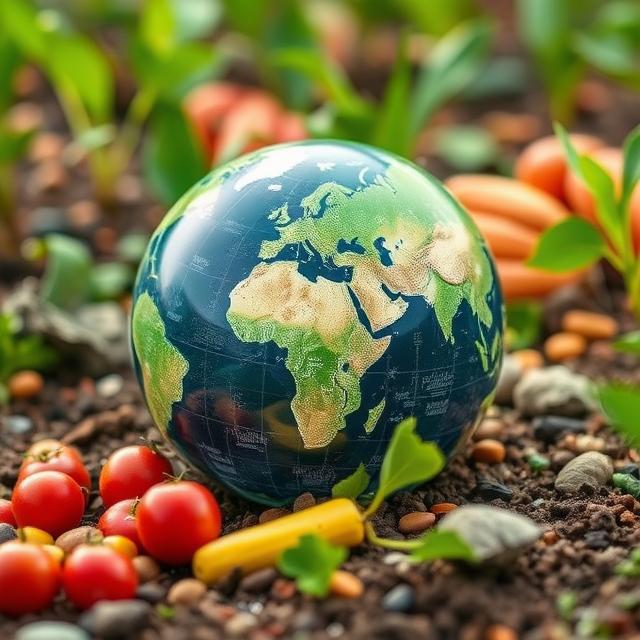Food security is no longer just a regional issue, it is a key element influencing global economics and diplomacy. As countries are faced with food shortage, trade disruption, and crop destruction from weather, the spillover effect is very far beyond the agricultural ecosystem. It has a direct impact on the global stabilization system and growing impact on the way the global financial stability board measures global economic resilience. The realization of such linkages is most significant in informing policies that maintain food stocks and funds in good health.
Food Security as a Strategic Priority
Shortages of food in most developing nations fuel domestic unrest and economic dislocation. That dislocation overflows into foreign markets, ranging from political alignments to food prices. The global stabilization system relies on predictable, stable markets, and shortages of food undermine it. Inflationary pressure caused by supply disruptions in key food-producing countries becomes a feedback input into world monetary trends.
Food security is not solely a humanitarian issue; it is a strategic one. Governments and institutions are realizing more and more the threat to national security posed by food availability. When humans have insufficient food, productivity decreases, there is increased volatility, and public confidence is broken, each of which introduces volatility into the world stabilization system.
Climate Change and Its Chain Reaction
One of the most dangerous risks to global food security is global warming. Increased temperatures, changed climatic regimes, and natural disasters uproot crop formations across continents. When drought strikes grain-exporting nations or flooding tears apart livestock centers, their effects are felt in international markets immediately. These effects filter through the global financial stability board, which monitors global risk and lays out response models.
For instance, warnings or money policy recommendation changes would be made by the board in relation to projected inflation resulting from food shortages. The downturn in farm output also carries over into insurance companies, investment portfolios, and sovereign credit ratings. A poor harvest from one corner of the world now precipitates interest rate changes elsewhere, revealing the vulnerability of the international stabilization system.
Global Trade and Price Volatility
Trade has a huge impact on food security. Most import-dependent nations are most vulnerable to global price fluctuations and supply chain. If a country suddenly imposes an export ban on rice or wheat, downstream nations have to scramble to find alternatives, perhaps at a higher price. That’s the kind of volatility that triggers market instability that the global financial stability board watches closely.
The function of this board is to ensure that institutions of finance are made shock-resilient to worldwide shocks, including shocks from food. They assess the commodity exposures of banks and governments and advise how to keep their effects within bounds. In this manner, food security problems directly feed into fiscal and monetary policy globally.

How Food Security Affects Global Stabilization System and Finance
Policy Responses and Multilateral Coordination
Food security must be treated by collective action at the level of sectors and countries. The regional development banks, the World Bank, and the International Monetary Fund are to play the leading part in the financing of food security programmers. These are meant to feed people but also to serve the global stabilization system by defusing potential flashpoints for conflict and economic disintegration.
The global financial stability board collaborates with the above organizations to evaluate the financial consequences of food crises. They also deliver assistance for the development of more sustainable agri-systems, climate change adaptation investment, and stabilization of commodity markets. Food deficiencies tend to burst into banking and currency crises very quickly unless there are robust policies, especially in fragile economies.
Technology and Innovation for Sustainability
Innovation can provide world food systems. Precision farming, drought-resistant crops, and e-marketplaces are helping producers in bringing yields closer and higher to consumers. These technologies lower exposure to risk, hence the resilience of the supply chain is improved, thereby strengthening the global stabilization system.
True enough, with the more intensive technology applied to agriculture today, such investments are monitored globally by the international financial stability board as leading indicators of long-term economic and financial health. It is not so much about food, it’s about global security and fiscal confidence.
Food security plays a vital role in the global stabilization system and is closely monitored by the global financial stability board for financial impact.
How Empire Classic Strongman Shapes Modern Political Corruption



